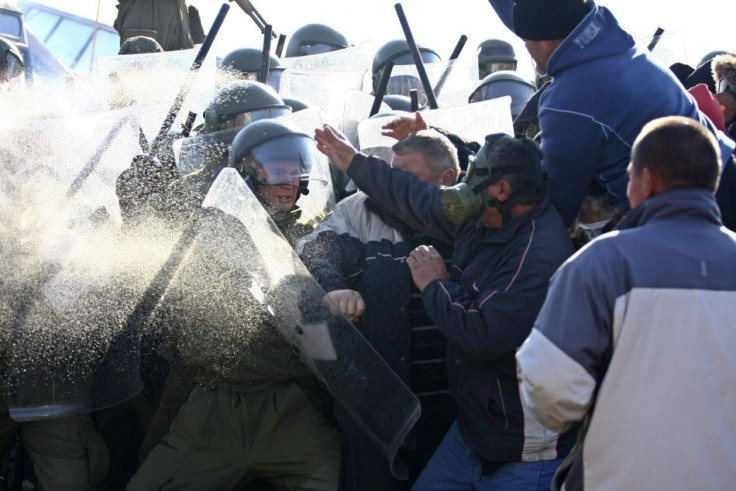In Kosovo, Serbs Protect Their Land from NATO

In Northern Kosovo, ethnic Serbs went to battle with NATO and Kosovo Force peacekeepers. About six miles south of the border with Serbia, the Serb protestors and security officers fought with sticks and batons, guns and rubber bullets, tear gas and water cannons. Two NATO soldiers were shot and wounded and another two dozen hospitalized.
The riot was sparked by NATO's removal of homemade barricades set-up by Serbs in the city, but the issue has much deeper roots. The local Serb population doesn't recognize the independence of Kosovo, the former province of Serbia that declared itself its own nation in 2008, following years of ethnic wars in the 1990s.
Then, in July, Kosovo's government tried to take control of border territory that is under de facto control of Serbia. To prevent any encroachment, Serbs in Kosovo constructed barricades and roadblocks from found materials and old cars on the border. Fighting broke out on Monday when NATO tried to remove the barriers, claiming that it needed free movement throughout all of Kosovo and that the obstacles were blocking the route to a military base.
Additionally, the European Union (EU) and NATO have been unable to operate in the northern Kosovo due to Serb resistance, according to Reuters.
Serbian President Boris Tadic has called for an immediate end to the violence and NATO has condemned the events. Nonetheless, violence carried over from Monday into Tuesday, and NATO has been authorized to use live fire against protestors as necessary.
The use of violence against (NATO) troops is unacceptable, NATO spokeswoman Oana Lungescu stated on Tuesday.
We urge all parties to exercise restraint and cooperate fully with all international actors on the ground to ensure freedom of movement without delay.
These types of border-clashes are not unusual. The violence occurred before delegates from Serbia and Kosovo were to meet in Brussels for cooperation talks. In October, Serbia was given EU candidate status, a necessary step in becoming an EU member state. The country's membership is not guaranteed, and the success of talks with Kosovo are required if Serbia is to move forward.
All other EU-mediated cooperation talks have failed, and the success of Thursday's meeting will be important for both nations.
Five current EU member states don't recognize Kosovo -- Cyprus, Greece, Spain, Slovakia and Romania.
© Copyright IBTimes 2024. All rights reserved.





















